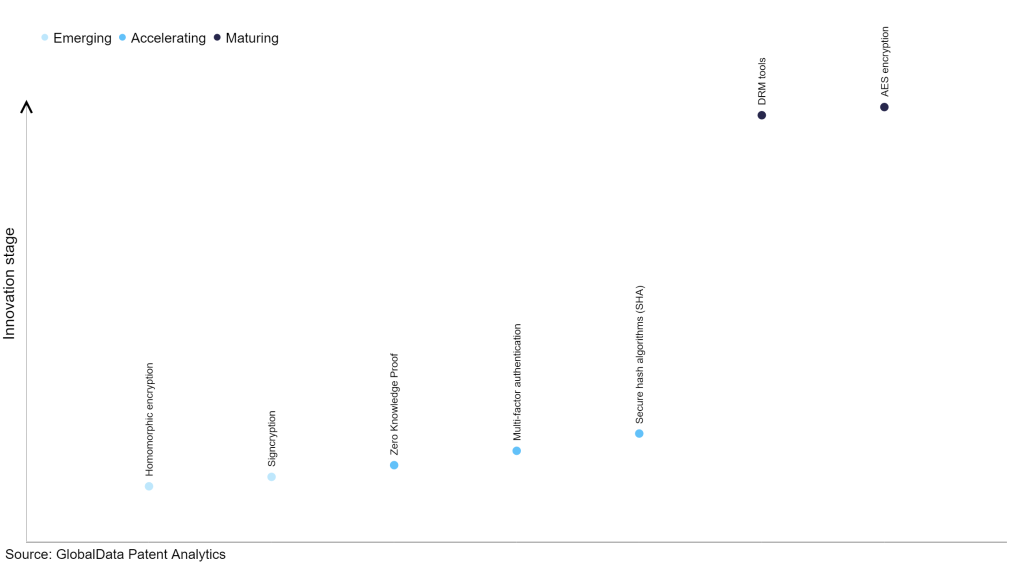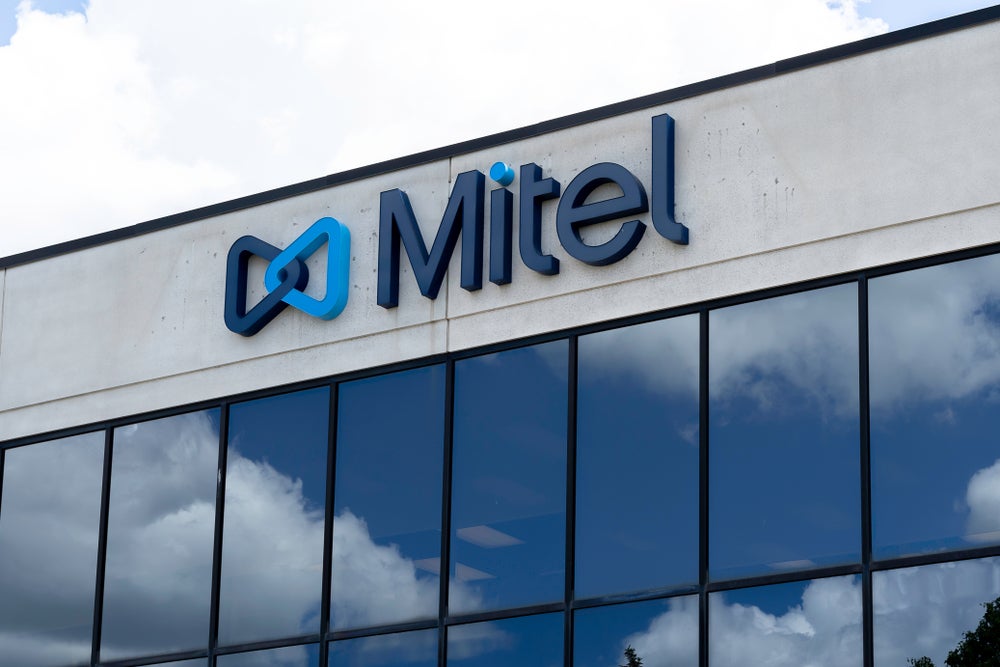The technology industry continues to be a hotbed of patent innovation. Activity is driven by the need for stronger and more comprehensive cybersecurity measures to protect against cyber threats and attacks, and growing importance of technologies such as blockchain, distributed ledger technology, decentralized identifiers, and verifiable credentials. These technologies collectively contribute to the development of decentralized identity systems, enabling individuals to have greater control, privacy, and security over their digital identities, while establishing interoperability and trust in a decentralized ecosystem. In the last three years alone, there have been over 1.5 million patents filed and granted in the technology industry, according to GlobalData’s report on Cybersecurity in technology: decentralized identity. Buy the report here.

Access deeper industry intelligence
Experience unmatched clarity with a single platform that combines unique data, AI, and human expertise.
However, not all innovations are equal and nor do they follow a constant upward trend. Instead, their evolution takes the form of an S-shaped curve that reflects their typical lifecycle from early emergence to accelerating adoption, before finally stabilizing and reaching maturity.
Identifying where a particular innovation is on this journey, especially those that are in the emerging and accelerating stages, is essential for understanding their current level of adoption and the likely future trajectory and impact they will have.
185+ innovations will shape the technology industry
According to GlobalData’s Technology Foresights, which plots the S-curve for the technology industry using innovation intensity models built on over 1.6 million patents, there are 185+ innovation areas that will shape the future of the industry.
Within the emerging innovation stage, homomorphic encryption and signcryption, are disruptive technologies that are in the early stages of application and should be tracked closely. Zero knowledge proof, multi-factor authentication and secure hash algorithms (SHA) are some of the accelerating innovation areas, where adoption has been steadily increasing. Among maturing innovation areas are DRM tools and AES encryption, which are now well established in the industry.
Innovation S-curve for cybersecurity in the technology industry

Decentralized identity is a key innovation area in cybersecurity
Decentralized identity refers to an identity system that utilizes digital identity technologies without relying on a central authority, such as governments or corporations, to manage identities. In decentralized identity systems, individuals or organisations have the autonomy to control, manage, and safeguard their own digital identities. This is achieved through the utilisation of distributed ledger technology like blockchain, which ensures transparency and security. Decentralized identity systems also offer a range of authentication methods, including biometric authentication and digital signatures, to verify and authenticate identities.
GlobalData’s analysis also uncovers the companies at the forefront of each innovation area and assesses the potential reach and impact of their patenting activity across different applications and geographies. According to GlobalData, there are 460+ companies, spanning technology vendors, established technology companies, and up-and-coming start-ups engaged in the development and application of decentralized identity.
Key players in decentralized identity – a disruptive innovation in the technology industry
‘Application diversity’ measures the number of applications identified for each patent. It broadly splits companies into either ‘niche’ or ‘diversified’ innovators.
‘Geographic reach’ refers to the number of countries each patent is registered in. It reflects the breadth of geographic application intended, ranging from ‘global’ to ‘local’.
Alibaba Group is the leading patent filer in decentralized identity, followed by nChain and Microsoft. Other prominent patent filers in the space include Visa and Advanced New Technologies.
By geographic reach, Beta Bionics leads the pack, followed by The Saudi Public Investment Fund and Sophos. In terms of application diversity, Alphabet holds the top position, followed by Huawei, and Alibaba Group.
Decentralized identity offers individuals greater privacy, control, and security over their digital identities, while promoting trust, interoperability, and inclusion in the digital ecosystem. It has the potential to transform how identities are managed and verified, leading to more secure, efficient, and user-centric identity solutions.
To further understand how cybersecurity is disrupting the technology industry, access GlobalData’s latest thematic research report on Cybersecurity.
Data Insights
From

The gold standard of business intelligence.
Blending expert knowledge with cutting-edge technology, GlobalData’s unrivalled proprietary data will enable you to decode what’s happening in your market. You can make better informed decisions and gain a future-proof advantage over your competitors.







